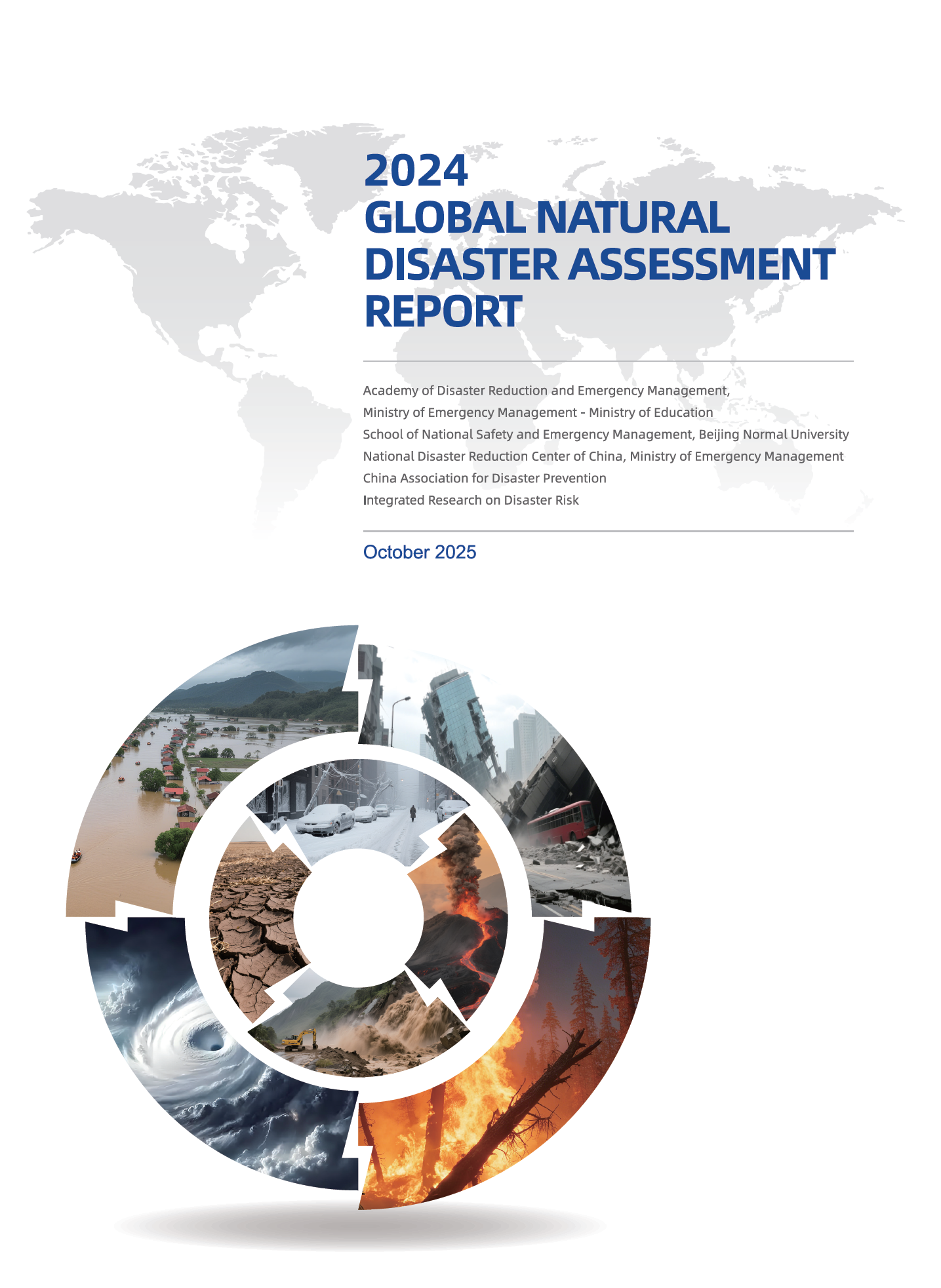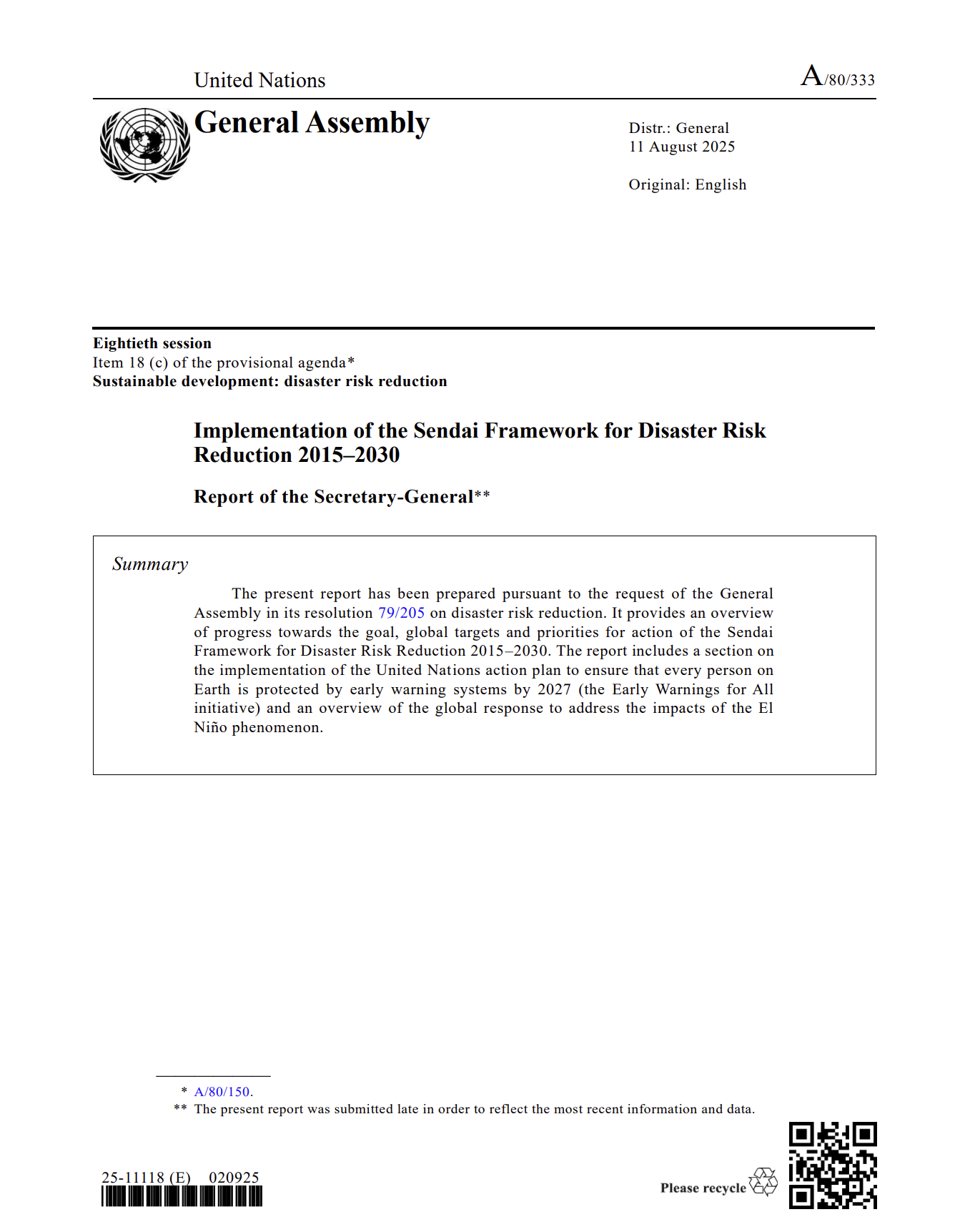Scientific research and practitioner experience have revealed that disasters, development and poverty are intimately linked. Destruction of assets and livelihoods in disasters set back hard-won development gains and worsen poverty, often for extended periods of years[i]. Progress in ending extreme poverty may be reversed in the face of a disaster event and poverty re-entrenched. Disaster impacts are growing, amplified by rapid growth and unsustainable development practices that increase the exposure and vulnerabilities of communities and capital assets. Governments increasingly recognise that the reduction of disaster risks is a foundation for successful sustainable development, and that disaster risk is a crosscutting issue, requiring action across multiple sectors.
The ICSU/IRDR Issue Brief was the first background document to appear within the disaster risk reduction cluster ahead of the OWG’s Seventh Session, held in New York, USA, 6-10 January 2014.
Read the full brief here [PDF 693 KB]
[i] (a) UNESCAP, 2012. Asia Pacific Disaster Report 2012: Reducing Vulnerability and Exposure to Disasters. UN Economic and Social Commission for Asia and the Pacific, Bangkok. See also Asia Pacific Disaster Report 2010: Protecting Development Gains. (b) UNISDR, 2013. Global Assessment Report on Disaster Risk Reduction 2013. http://www.unisdr.org/we/inform/publications/33013. (c) World Bank 2013. Risk and Opportunity, Managing Risk for Development. World Development Report 2014, 60p.






